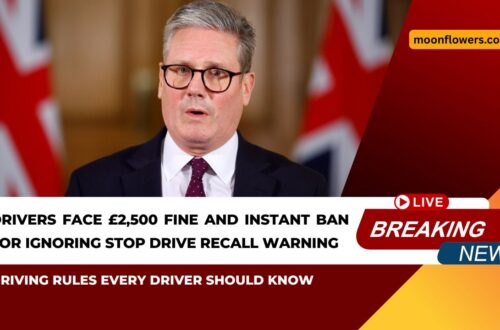Starting September 2025, the U.S. Department of Transportation introduces a new policy affecting drivers aged 70 and older.
This initiative aims to ensure road safety while preserving independence. Instead of imposing blanket age-based restrictions, the law introduces a tiered renewal system based on age group and ability, combined with opportunity for state-level flexibility.
Why These Changes Matter
Currently, over 48 million Americans aged 65+ hold valid driver licenses, a number projected to grow substantially.
Driving remains essential for many seniors to stay active, reach appointments, shop, and socialize. But natural aging—like slower reaction times, diminished vision, and cognitive shifts—can impact driving competence.
This law balances safety with autonomy by evaluating drivers on capability rather than age alone.
What’s Changing at Renewal Time
The law introduces age-specific renewal requirements:
| Age Group | Renewal Frequency | Evaluations Required |
|---|---|---|
| 70–79 years | Standard timeline | Vision screening and reaction test |
| 80–86 years | Every 2–4 years | In-person renewal with vision screening |
| 87+ years | Annually | Road test and medical clearance |
These tiered changes aim to detect impairments earlier, ensuring safe seniors stay behind the wheel when appropriate.
Types of Evaluations Seniors May Face
Based on their age and health, drivers may face the following during renewal:
- Vision Test – Essential to ensure safe visual acuity.
- Cognitive Screening – Tests memory, reaction, and decision-making.
- Road Test – Required automatically for drivers 87+, or if concerns are raised by DMV, physicians, or family.
Reporting System for Safety Concerns
The new policy empowers trusted individuals—family members, doctors, or caregivers—to report unsafe drivers to the DMV.
If reported, drivers may be required to undergo evaluations. This scheme adds an important safety layer while relying on genuine safety concerns—not personal disputes.
State-Level Flexibility
Although this is a federal framework, each state may tailor implementation. Variations may include:
- Using telehealth or remote assessments where allowed.
- Requiring in-person renewal procedures.
- Adjusting specific renewal timelines or testing criteria.
For example:
- California will require seniors 70+ to renew in person.
- Florida may enforce vision tests at each renewal after 80.
- Texas may require annual check-ins for those 85+.
Drivers should consult their state DMV for details.
Restricted Licenses as a Safe Option
When full renewal may not be appropriate, seniors can apply for restricted licenses. These may include conditions like:
- Daylight driving only
- Local-area driving
- No highway or high-speed use
Restricted licenses offer a middle path—preserving freedom while reducing risk.
Alternatives to Driving
If continuing to drive is unsafe, seniors have many options:
- Ride-sharing services (e.g., Uber, Lyft)
- Community or paratransit shuttles
- Volunteer driver programs
- Support from family and friends
These alternatives help seniors remain independent and active without relying on personal vehicles.
The September 2025 update to U.S. driving license rules for drivers aged 70 and above marks a shift to age-appropriate, ability-based evaluations.
With vision checks, cognitive screenings, and tiered renewal requirements, the policy emphasizes safety while respecting independence.
Through this measured approach—paired with state flexibility and support systems—the U.S. is creating a fair, clear path forward for older drivers.
FAQs
Will turning 70 automatically cancel my license?
No. The new rules don’t revoke licenses; they simply require tailored renewal assessments like vision and reaction tests.
Can someone report me if they think I’m unsafe?
Yes. Family members, caregivers, and physicians can report safety concerns to the DMV, prompting reevaluation.
Do all states implement these federal changes the same way?
No. While the law sets standards, each state may adjust processes, tests, and timelines—check with your local DMV.










One day I may not be able to operate a vehicle. There are some now that should never have been allowed on the hi ways ever. That’s a personal opinion. Times I shouldn’t have been driving on the road due to my not drinking enough. . .